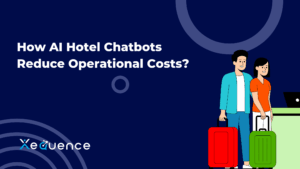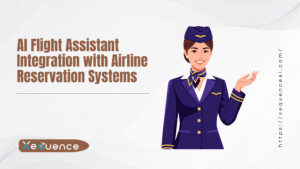- Home
- Guest Experience
- 10 Crucial Errors Hotel Call Centers Must Avoid
10 Crucial Errors Hotel Call Centers Must Avoid
- March 31, 2024
- Suraj Kumar
- Guest Experience, Hotel Management, Hotel Marketing

Hotel Call Center Common Errors
Traveling for personal or office work doesn’t always mean that the experience of a guest will be measured by how the management treats with them during their stay. Hospitality has long been defined by its exceptional customer care services. When deciding to take a vacation, travelers are actually faced with an abundance of options. Ultimately, the distinction between selecting your hotel and your rivals frequently comes down to customer service. The day when simply a simple “please” or “thank you” would make a customer pleased are long gone. They are not enough, even though best AI chatbots are a component of good manners! In the hospitality industry, providing outstanding customer service is an essential element for success, but it’s even more crucial. In the hospitality industry, patrons not only purchase a room and meals, but also the ambiance, the encounter, and the personalized attention!
How to manage a hotel call center successfully?
- Implementing call score in hotel call centers
- Developing sales mindset among agents
- Standardizing note-taking
- Adopting the right tech
- Providing training to hotel call center agents
What are the common Call Center Mistakes?
Slow response
Waiting on hold to get an answer while a consumer is irritated about their problem is the last thing they want. In order to minimize long wait times, contact centers can identify the nature of the caller’s problem and start interacting with clients right away using voice recognition or basic IVR. Not only are call queuing systems and automated callback alternatives growing in popularity, but they also assist reduce consumer stress by providing clients with real-time updates on their queue position.
Making a bad start
Clients are curious about what will happen, how the call center representative will assist or when their issue will be resolved. To make sure that everyone is in agreement, it is obvious to set explicit expectations even though it is frequently ignored.
Extra hold time
What better way to spend consumers’ time if they have to wait on hold? You may make the contact more valuable and save the customer work after the agent answers the phone by putting in place the appropriate systems.
Ignore customer feelings
Early in a contact, firms can utilize natural language processing (NLP) to quickly determine the nature and severity of a problem, both objectively and in terms of the customer’s level of frustration. This can be achieved by asking the consumer to briefly describe their issue. Emotion analytics is an emerging discipline that examines people’s responses to determine their attitude or mood. This allows businesses to engage with customers on an emotional level and makes for some very beneficial business opportunities.
Exasperating escalations
The contact center counterpart of one-click ordering is single contact resolutions. First Contact Resolution, attained by agents, denotes that the customer’s demands were appropriately attended to on their initial contact with the business. They won’t have to follow up to look for a resolution any longer thanks to this. Any agent may become a multi-skilled product expert with the correct desktop tools and resources; it allows them to fix the problem the first time the customer contacts them.
Being reactive, not proactive
Happier consumers, less work from them, and less contact center volumes can all be achieved by AI in hotel industry. Although predictive maintenance has been a concept for many years, it has only been made possible for companies like Vodafone to fully utilize the potential that it offers. Vodafone is able to analyze potential problems and automatically contact customers before they need to contact customer services. This is made possible by recent advancements in artificial intelligence.
Tricky transfers
Elevations are unavoidable in certain situations. It is crucial, then, that call center Tier 2 agents have access to the same client histories, preferably with the use of visual aids. Repeating yourself annoys customers and raises Average Handling Time and customer effort. Determining the correct department for a customer after making them wait for a supervisor is one of the worst call center errors, thus intelligent routing is also essential.
Faulty UI/UX
What’s in the details is what counts. A single misguided picture, broken link, out-of-date article, or incorrect instruction can make a whole customer experience go bad. In a call center, AI automation plays a critical role in analyzing large amounts of data to support quality assurance testing and spot high-effort errors or hiccups that could negatively impact patron experiences.
Complicating matters
Avoid providing too many options to the buyer. Instead of wasting time or energy deliberating about difficult decisions, they wish to settle their dispute swiftly and amicably. The contact center should help the consumer by advising the best course of action even though there may be multiple ways to get there. The customer is relying on you to fulfill that trust on their behalf.
Shoddy self-service
Self-service calls ensure that clients get the information they need in the quickest possible way. Additionally, fewer calls are directed to human agents when they come in. Question and answer sections, live chat, community forums, and knowledge center databases are the channels that are used to direct inquiries instead. But in order to truly save customers’ work and avoid adding to their frustration by failing to address their issues, these channels need to be perfectly functional and readily accessible.
Conclusion
A hotel call center’s efficacy has a significant impact on the quality of the visitor experience. It’s critical to steer clear of frequent hazards including poor communication, protracted wait times, a lack of personalization, insufficient training, and technological malfunctions. Hotels can guarantee outstanding service that encourages client happiness and loyalty by placing a high priority on effective communication, well-trained staff, and seamless technological integration. Recall that every interaction matters in the cutthroat hospitality sector in determining the overall impression that guests have of your establishment.
Recent Posts
Newsletter
Get regular updates on data science, artificial intelligence, machine
You may also like

AI Travel Assistants: The New Personal Travel Planners

5 Things an AI Travel Assistant Can Do in Seconds

How AI Hotel Chatbots Reduce Operational Costs?




